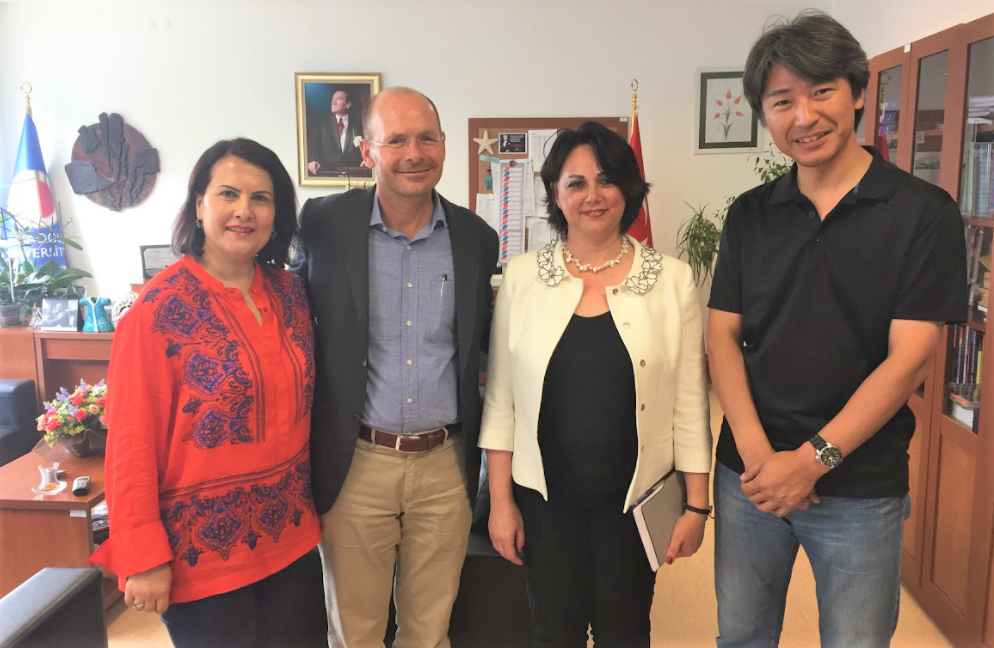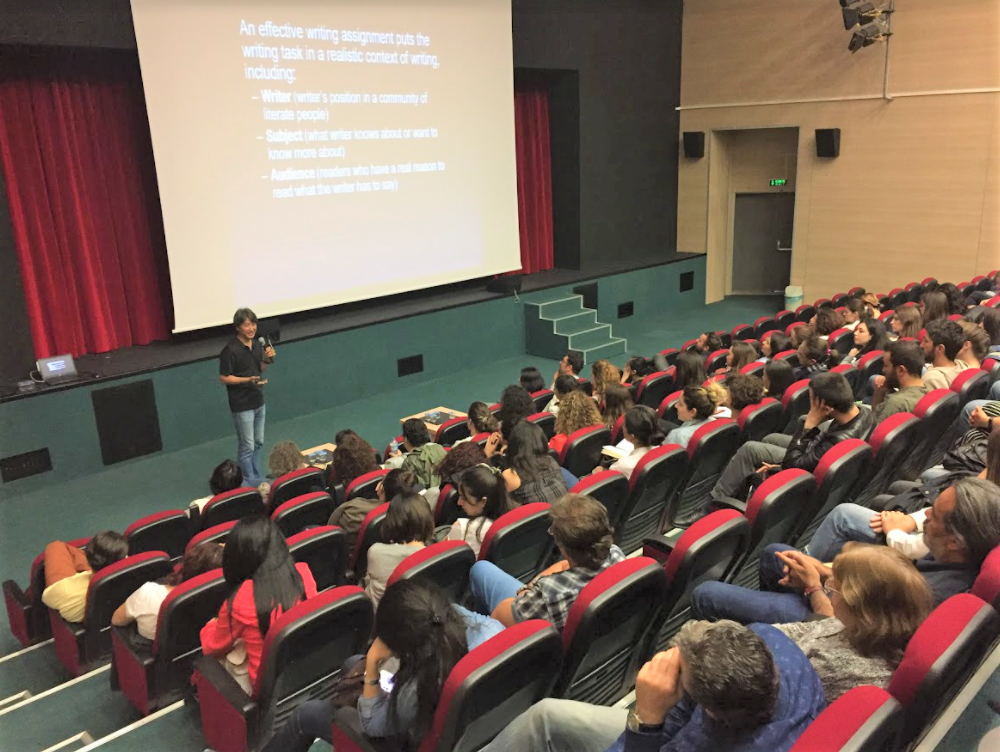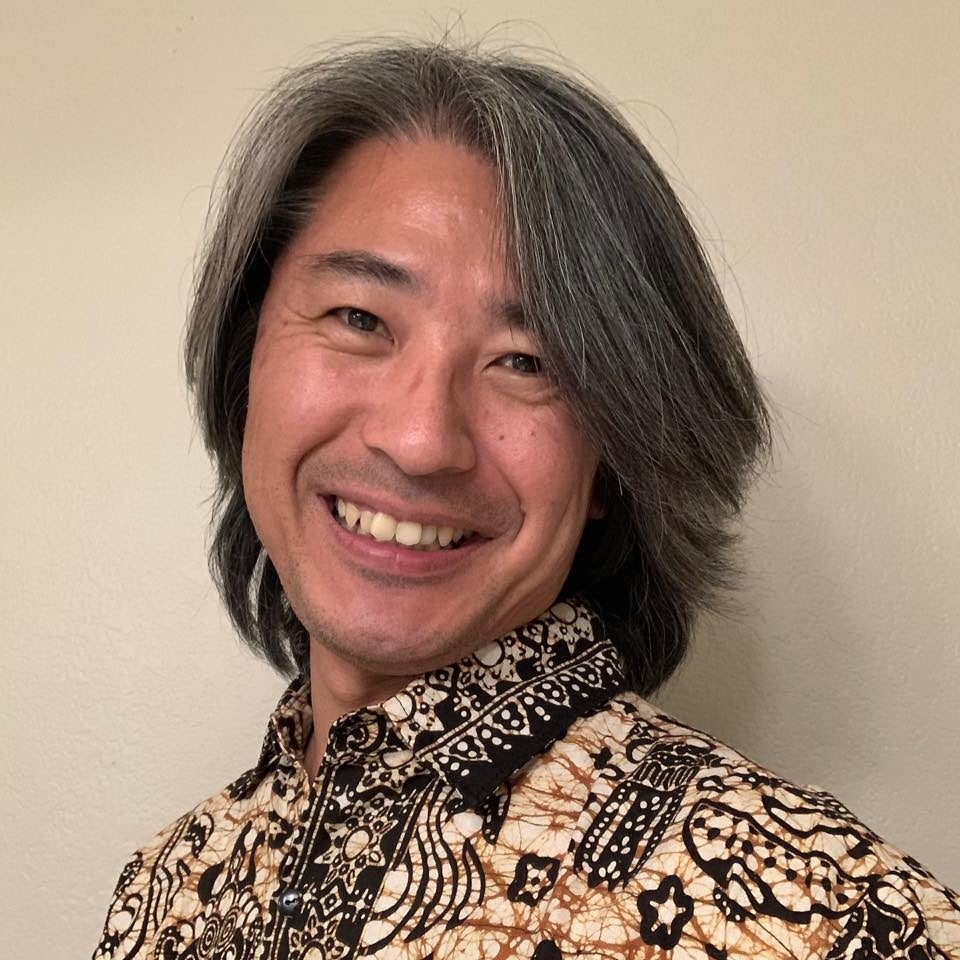“What I do is change people’s mindsets.”
Many English Language Specialist assignments are just two weeks long, with an itinerary that sometimes resembles that of a rock star. The Specialist is given a very limited time to make a significant impact. Dr. Paul Kei Matsuda is a master at this. Between 2014 and 2019, Matsuda was invited three times to visit Turkey to share his expertise on academic writing. On each visit, he travelled to three or four cities, giving workshops, conducting site visits, and presenting at conferences.
Wherever he travelled there were opportunities to meet with local teachers and administrators to discuss their concerns. While always recognizing what was unique in their questions, Matsuda could also predict what their issues would be. “I’ve done so many of these workshops that I’ve seen all the variations,” he explained. “There are maybe 50 different issues and concerns that are always brought up.” The strategies he teaches to address these issues may differ somewhat from China to Qatar, but it’s a matter of degree. There can also be differences within a country. In Turkey, in one city, the teachers were more concerned with academic honesty and motivation; at the next stop, they were anxious to maximize educational benefits.

Another frequent “top 50” question is how to teach grammar rules and to get students to memorize them. The first thing Matsuda does is challenge the very notion of memorizing rules. Workshop participants are often caught off guard. There response is, “But, but, but . . .,” recalled Matsuda. That’s when he gives them alternative strategies, with concrete examples. He then gives the participants a chance to generate strategies for their own situations, which helps participants accept what was initially a difficult concept. “If [I were to] come in and just say, ‘You are doing this wrong,’ they won’t listen,” Matsuda said. “What I do is change people’s mindsets.”
From experience, Matsuda has found that his role is not just addressing the problems teachers have already identified, but those they aren’t even aware of. Frequency of grammar correction is a common problem in this category. In Turkey, “some teachers provided lots and lots of correction,” said Matsuda. “They insisted on correcting every error. What I asked them was, ‘Why? Do students request corrections?’ The assumption is always that students want the answers in order to pass the test or avoid hurting their scores.” At this point, Matsuda introduced the idea of not correcting every error, providing alternative strategies within the context of how languages are learned.

A key part of any workshop is reflection, allowing the teachers time to pause, process, and share with each other and with Matsuda. Often teachers say, “Why do you care what I think?” to which he replies, “I want to hear what you are learning.”
Of course, with so little time to reinforce the ideas of the workshop, Matsuda emphasized that he was “not some one-off specialist to come in and tell participants what to do.” Rather, Matsuda continues to meet with many of the teachers in his workshops online and at conferences, both in-country and through teacher exchanges to the U.S. “I try to create networks to continue to talk and share ideas,” he said. With this value-added approach, he lends depth and meaning to his in-person Specialist work, which is just a start to what can become an ongoing conversation.

Dr. Paul Kei Matsuda is Professor of English and Director of Second Language Writing at Arizona State University. His areas of expertise include writing, teacher identity, teacher professional development, program administration, and history of English language teaching. A sought-after speaker, he has given keynote and plenary talks as well as research and teaching workshops in 25 countries, covering all continents except Antarctica. He has also taught writing courses and graduate courses in various countries around the world. He is founding chair of the Symposium on Second Language Writing and editor of the Parlor Press Series on Second Language Writing. He is also former president of the American Association for Applied Linguistics. When he is not working, Paul enjoys cooking, scuba diving (he is a scuba diving instructor), and motorcycle riding.
